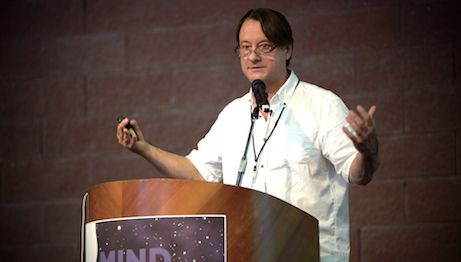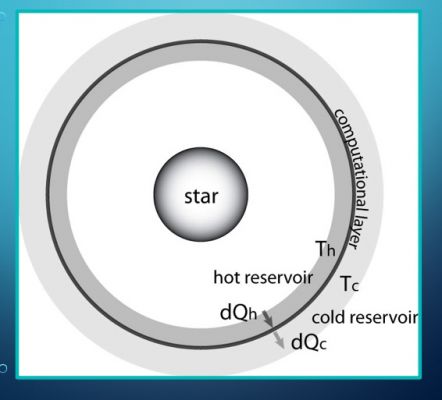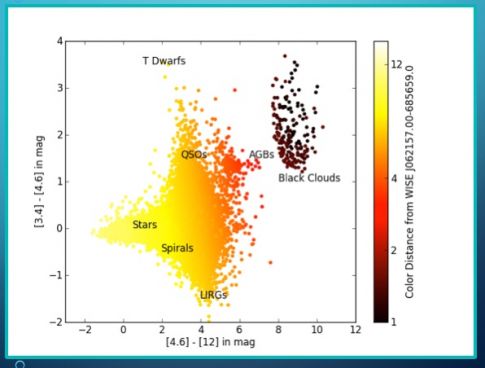
What are the physical limits constraining the exponential growth of computation? And how might we overcome them?
In a talk that captures the spirit of the Foundational Questions Institute beautifully, astrophysicist Fred Adams began with a series of fairly grounded calculations looking at when we might run out of computational resources on the planet (spoiler alert: it's a lot sooner than you might imagine) and ended with some fun speculation, by proposing that an advanced alien civilisation could mine a star (an asymptotic red giant branch star) for energy and for graphite and silicon to build a solar-system-sized "black cloud computer." He has also worked out the signatures of such a black cloud computer that today's Earth-bound astronomers could search the skies for, while looking for evidence of alien tech.

Black Cloud Computer
That's quite a ride in a 15 minute talk, which you can enjoy in its entirety. It begins with a fascinating look back through the history of science. For a thousand years we had practitioners of science, but over the last century that split into theoreticians and experimentalists, Adams notes. In the past two decades, that split again, adding computational scientists to the mix. And in recent years, we've seen an explosion in data science. Looking at the history of the evolution of science and the growing importance of computation, Adams says, "There will be a new paradigm and this paradigm will arrive sooner rather than later."
And according to Adams' calculations, that paradigm shift may need to come soon before the demands placed on Earth's resources by ever more powerful computers becomes too great. Moore's Law predicted the number of transistors on a chip would double every year or so. We are indeed seeing an exponential increase in the volume of computing, and also the speed of computing and the variety of data.
In his talk Adams run through a number of calculations that show when we might hit the limits of computation -- assuming things continue as they have been, with no significant new resources being found. If data storage continues to grow at the current rate, Adams argues, there will be a time where the data storage mass exceeds the mass of the biosphere itself. That such a limit exists is not surprising. That we could hit it in just 32 years, according to his math, is perhaps more of a shock. Adams talks through a number of similar startling calculations on the podcast.

We may be able to get around this, but we will need new energy sources, new storage strategies, new algorithms, or some other shift in building computers, Adams says. It's also worth pondering whether we'll reach this saturation in exponential growth before or after the speculated AI singularity -- the point at which humans are outsmarted by artificial intelligences.
Having shared this pessimistic vision for the future with the FQXi crowd, Adams threw in a somewhat whimsical solution. If we need more energy and more storage capacity, perhaps we should look to the stars. Asymptotic red giant branch stars burn a thousand times brighter than our sun, and throw off silicon and graphite in their winds. As a bit of "wild speculation" Adams wondered whether an advanced alien civilisation might create a solar-system-sized black cloud computer that mines such a star for energy and materials.
As an astrophysicist, Adams then thought about what such a black cloud computer might look like, if viewed from Earth. Listen to his talk for the observable signatures that today's astronomers might look out for on the hunt for alien intelligence.
August 1, 2019
The Limits of Computation. Astrophysicist Fred Adams argues the world will run out of resources for computation in 32 years without a paradigm shift. And he discusses how alien civilizations could mine stars to create solar-system-sized "black cloud computers," which could be detected on Earth. From the 6th FQXi meeting in Tuscany.
Full Podcast
[youtube: KlTLpTrhGu4, 560, 315]
(Edited on 19 August 2019 to add the video of talk, which is now posted.)